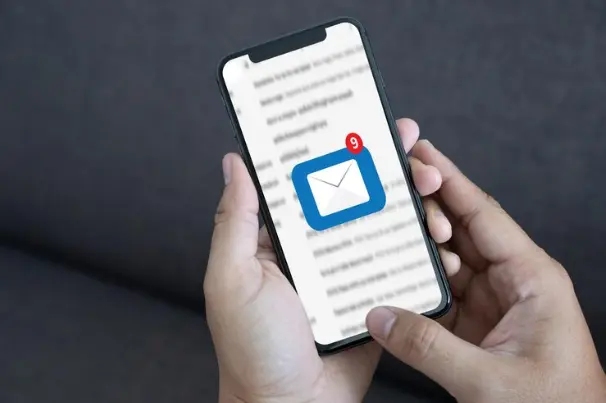Beyond the Call: VoIP Integration in Event Planning and Staffing

Effective communication is crucial for success in event planning and staffing. It serves as the linchpin that holds everything together. The evolution of Voice over Internet Protocol (VoIP) technology has emerged as a transformative force. This technology reshapes how events are orchestrated, and staffing is managed.
This article delves into the multifaceted realm of VoIP integration. We will explore its key benefits and applications in event planning and staffing.
Evolution of Communication
Communication in event planning and staffing has traversed a fascinating evolutionary path. Traditionally, these industries grappled with the limitations of conventional communication methods. Phone lines were connected, but it was hard to share important information because of distance. It was necessary to resolve the following challenges:
- Rapid decision-making
- Real-time coordination
- Transcend physical boundaries
1. Emergence of VoIP
Enter VoIP—a revolutionary leap in the evolution of communication. VoIP liberates conversations from the confines of traditional phone systems. It leverages the power of the internet to transmit voice data.
The shift from analog to digital communication overcomes geographical barriers. It also introduced a myriad of possibilities to streamline processes and enhance collaboration.
2. Overcoming Geographical Constraints
The advent of VoIP marked the end of communication problems. Companies and event planners are no longer limited by physical infrastructure. They now have a tool that helps with voice communication. VoIP opened avenues for integrated, multimedia-rich exchanges.
Streamlining Event Planning with VoIP
VoIP facilitates real-time collaboration between the company and the event staffing agency. Everyone stays connected, from vendors to on-site staff, ensuring everyone is on the same page.
i. Efficient Remote Coordination
The ability to coordinate remotely is a game-changer in the events industry. VoIP enables event planners to:
- Manage logistics
- Handle last-minute changes
- Communicate with stakeholders from anywhere in the world
ii. Automated Attendee Communication
VoIP introduces automation to attendee communication. Reminders, updates, and important announcements can be scheduled and disseminated automatically. This benefit reduces the burden on event organizers. It also ensures that participants stay well-informed.
iii. Enhanced Multimedia Capabilities for Event Content
VoIP’s multimedia capabilities enhance the quality of event content. VoIP provides a platform for a more engaging and interactive event experience, whether it’s:
- Streaming live presentations
- Conducting virtual workshops
- Sharing rich media content
VoIP in Staffing: Breaking Down Barriers
For staffing agencies, geographical barriers often pose challenges. VoIP eliminates these constraints, allowing recruiters to:
- Connect with potential candidates
- Conduct interviews
- Coordinate assignments seamlessly, irrespective of location.
1. Improving Communication Within Teams
Effective communication is the cornerstone of successful staffing. VoIP fosters clearer and more immediate communication within teams. These benefits reduce misunderstandings and improve efficiency.
2. Facilitating Instant Candidate Feedback
VoIP streamlines the feedback loop between recruiters and candidates. Instant messaging allows recruiters to:
- Provide timely feedback
- Enhance the candidate experience
- Expedite the hiring process
3. Enhancing Recruitment Outreach with Virtual Job Fairs
Virtual job fairs have become a staple in modern staffing. VoIP enables staffing agencies to:
- Host virtual job fairs
- Connect job seekers with employers in real-time
This innovative approach expands recruitment outreach and attracts a diverse pool of candidates.
Key Benefits of VoIP Integration
VoIP provides a budget-friendly alternative to conventional telephone systems. This enables event planners and staffing agencies to allocate resources more efficiently. The savings achieved can be redirected towards enhancing other aspects of the operation.
1. Enhanced Flexibility and Scalability
VoIP adapts to the demands of managing a small team or extensive event. Its flexibility and scalability make it a great solution for many operational needs.
2. Integration with Diverse Business Tools for Enhanced Workflow
VoIP goes beyond mere communication; it integrates seamlessly with other business tools. VoIP is now essential in various systems like customer relationship management (CRM) and project management. It contributes to a smooth and productive workflow.
VoIP and Customer Experience
VoIP is important in elevating client interactions for event planners and staffing agencies. Clients feel connected and valued because they can make and receive calls seamlessly.
1. Personalizing Communication for Better Customer Satisfaction
With VoIP, personalization becomes a key element of client communication. Personalized messages and targeted communication contribute to a more satisfying customer experience.
2. Improving Response Times and Accessibility
VoIP enables quicker response times, enhancing accessibility for clients. The following benefits of VoIP contribute to an improved experience:
- Real-time communication
- Instant updates
- The ability to address client queries promptly
3. Gaining Valuable Customer Insights Through VoIP Analytics
VoIP platforms often come equipped with analytics tools. These tools provide valuable insights into the following:
- Customer communication patterns
- Customer preferences
- Feedbacks
This data helps event planners and staffing agencies make informed decisions. It improves the customer experience.
Security Concerns in VoIP
Ensuring VoIP communication security is paramount for event planning and staffing. Several key considerations need to be addressed:
i. Encryption and Secure Protocols
Implementing strong encryption protocols is crucial to safeguarding communication confidentiality. VoIP systems should use robust encryption algorithms, which protect data from interception and unauthorized access.
ii. Protecting Against Eavesdropping
VoIP calls are susceptible to eavesdropping if not properly secured. End-to-end encryption prevents unauthorized individuals from eavesdropping on sensitive conversations.
iii. Authentication and Access Controls
Implementing robust authentication measures ensures only authorized users can access the VoIP system. Multi-factor authentication adds an extra layer of security, reducing the risk of unauthorized access.
iv. Regular Security Audits and Updates
Conducting regular security audits helps identify vulnerabilities in the VoIP system. Promptly applying security updates and patches is essential to address any potential weaknesses. This continual monitoring ensures ongoing protection.
Additionally, integrating caller ID lookup functionality into VoIP systems enhances security by allowing organizations to verify the identity of callers and mitigate potential risks associated with unauthorized access.
Final Words
Embracing VoIP is not only a technological upgrade. It’s a strategic decision that positions organizations at the forefront of innovation. The lessons learned from successful implementations will impact these industries. VoIP catalyzes seamless, efficient, and future-ready communication in event planning and staffing.



